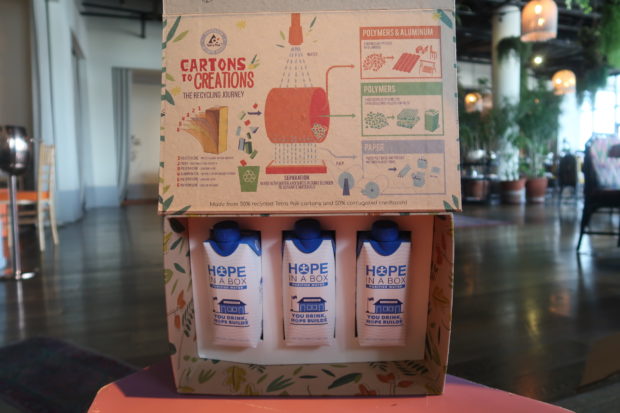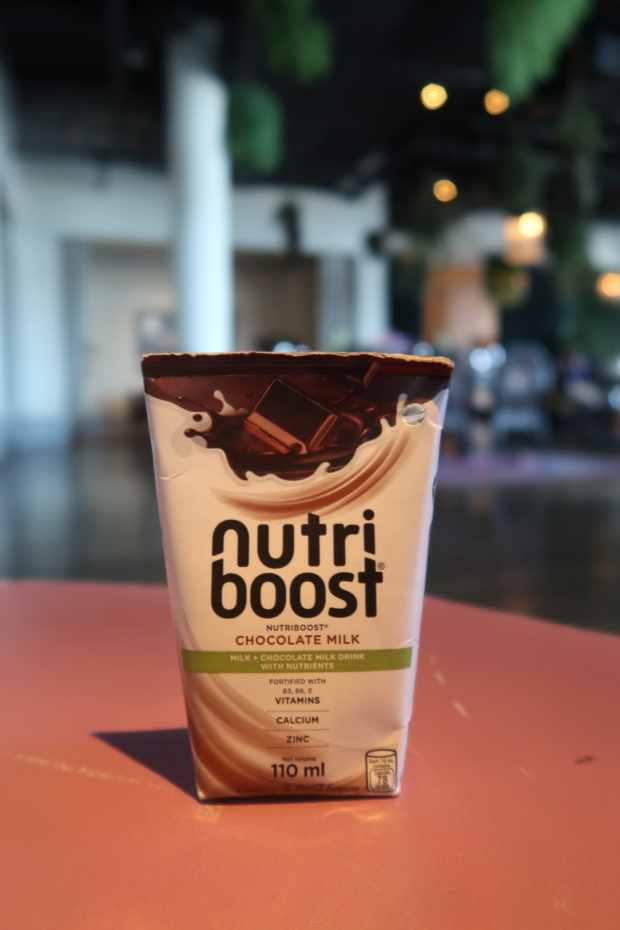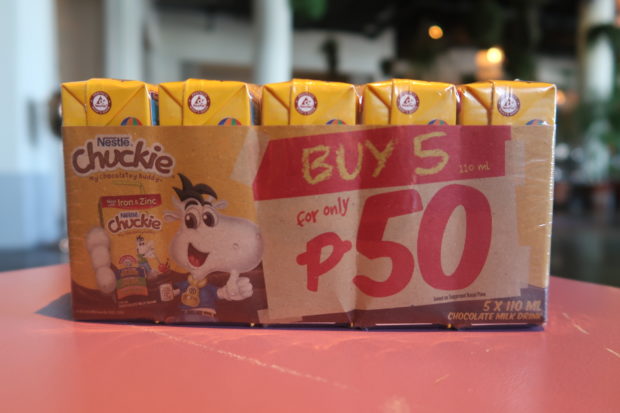Check the label: Interesting facts about Tetra Pak
Every day, billions of liters of water, milk, juice and other liquid foods are consumed. Do you know what goes in the packaging and distribution of the food and drink you give your family?
Get to know your packaging six quick facts and be at ease when you see the Tetra Pak logo in your food cartons and containers.
- Leading the industry with more than 60 years of expertise
Innovating food and beverage packaging system since 1951, Tetra Pak remains as global leader in ensuring top quality food safety and distribution – continuously improving with new technology and processes for the welfare of the people and the environment.
Tetra Pak understands that the future of the food industry is going to be digital. There’s a huge shift in the role of packaging, thus the birth of “The Connected Package” which allows food and beverage producers to turn their packages into full-scale data carriers for increased traceability and stakeholder value in the entire value chain.
When you speak of packaging, it’s no longer just about product protection and functionality – it’s about connectivity and new possibilities. This digitalization will enable food and beverage manufacturers to address many challenges that they face today including increased monitoring of the entire value chain, improvement in transparency and individual product tracking and reducing waste and achieving genuine circularity.
- Packaging Innovation – Aseptic Technology
The specialized Tetra Pak aseptic processes allow liquid food to retain color, texture, natural taste, and nutritional value for up to 12 months, without the need for preservatives or refrigeration. The combination of aseptic processing and packaging reduces waste, makes distribution extremely cost-efficient and converts your product into a consumer-ready format as well as making it possible for you to reach consumers in remote locations.
All our aseptic carton packages are made of renewable materials, recyclable paperboard and no refrigeration is needed when distributed and stored.
An aseptic package has been sterilized prior to filling with UHT (Ultra High Temperature) treated food, resulting in a product which is shelf stable for up to 12 months – this process ensures that both food and packaging materials are free of harmful bacteria when food is packaged.
- Functionality and design
Tetra Pak continues to develop and improve packages that are meticulously designed based on functionality and the customer’s needs – which are continuously changing overtime. Thus, always in search of the perfect match, producing only need-based designs.
Being the champions of functionality, the company has refined openings and closures which are ergonomically optimized for different user situations to get the best out of the customers’ product, wherever they are and whatever they consume.
- Big on low carbon circular technology
The main goal of a low-carbon circular economy is to reduce harmful carbon emissions by taking into account the climate impact of raw materials and the manufacturing value chain. Ideally, manufacturers design out waste and reuse & recycle materials – an essential part of sustainability today.
Operations at Tetra Pak is optimized for minimum climate impact which means: It is powered by renewable energy, using manufacturing processes that are highly efficient, and logistics that reduce fuel use.
Tetra Pak is the better choice – good for the people and the planet. Did you notice that some of your food packs bear the FSC symbol? The FSC is Forest Stewardship Council, an organization that makes sure companies who abide by their environmental requirements get their stamp of approval, and 86% of the Tetra Pak cartons produced in the Philippines carry the FSC label.
For several years, Tetra Pak has been implementing action plans to reduce lifecycle impact of its packaging, processing and service solutions. By 2018, the company reached a major milestone in helping customers produce more than 460 billion FSC labeled packages since 2007.
- Recycling for a sustainable future
Tetra Pak constantly finds ways to meet the evolving expectations and demands of the market by continuing to responsibly provide safe, secure and sustainable products to their customers and consumers. As a brand, they give high importance in understanding the diverse needs of their customers to create sustainable solutions to cater to a fast-growing population.
According to John Jose, Marketing Director of Tetra Pak Malaysia, Singapore, Philippines, Indonesia, “Our research in Tetra Pak Index 2019 shows that consumers believe they carry the responsibility for both their own health and the health of the planet. There is a growing belief that today’s lifestyles, particularly what we eat and drink, have a fundamental impact on both. There is also a strong potential for brands to demonstrate purpose, and bring about environmental innovations in packaging, as consumers increasingly see its value and are prepared to pay more for it. Based on our research, 43% of consumers say that an environmentally sound package makes them much more likely to consider a brand.”
The company foresees an attainable sustainable future which is why they developed beverage cartons to be 100% recyclable.
Aiming to establish a recycling value chain process for Used Beverage Carton (UBC) in Boracay Island, Tetra Pak creates awareness of recyclability of Tetra Pak cartons or UBCs through the distribution of paper waste bins around the area. These UBCs can be turned into recycled paper, even roof tiles and chipboards that are durable enough.
By applying the principles of the circular economy, Tetra Pak aims to reduce waste, keep materials in use and regenerate natural systems.
Just last year, in celebration of World Environmental Health Day, the company launched a “Food Safety and Beverage Carton Recycling Forum” in partnership with the Boracay Foundation, Inc. (BFI) — highlighting the importance of taking care of the environmental health through the promotion of cartons and UBC recycling.
Since 2002, Tetra Pak has been rolling out their Care & Share program — an annual interschool competition where about 580,000 students from 212 school partners are encouraged to properly dispose of their used beverage cartons for recycling and to drop them off at recycle bins provided by Tetra Pak in their schools.
After 15 years of implementing the project, the organization has collected 33 tonnes (2.3 million packs) of empty beverage cartons for recycling from the partner schools.
At present, Tetra Pak is working closely with Rural Industrial Corporation (RIC), to look for partner recyclers to help improve carton recycling capabilities and infrastructure in the Philippines.
- 6. The choice you make today benefits the future
Tetra Pak’s ambition is to deliver packages that contribute to a low-carbon circular economy with packages made entirely from renewable and recyclable materials without compromising on food safety requirements. The brand wants to be right there with their customers and consumers to help them grow sustainably which is why they have extended their packaging range to include more products with increased renewable content and reduced environmental impact.
Tetra Pak is working to support the sustainable future of our planet and long-term success of their customers. That’s why they are using fewer resources to create their packaging solutions without compromising and sacrificing their high-quality standards. Their packages are made with lighter but robust materials, to keep protecting what’s good for the future of food packaging, the future of the people who buy and consume these food products and most importantly, the future of this planet we all call home.
In a statement by Mr. John Jose, he emphasized that “by choosing a product packaged in a Tetra Pak carton, stamped with a “Protect What’s Good” logo, you are already making a conscious decision and positive contribution to a sustainable environment because Tetra Pak protects the future by protecting its people, and the environment. So look for the Tetra Pak logo. Why? Because not all cartons are created equal.”
Do you now understand why you get a sense of relief when your food is enclosed in a Tetra Pak carton?
ADVT


